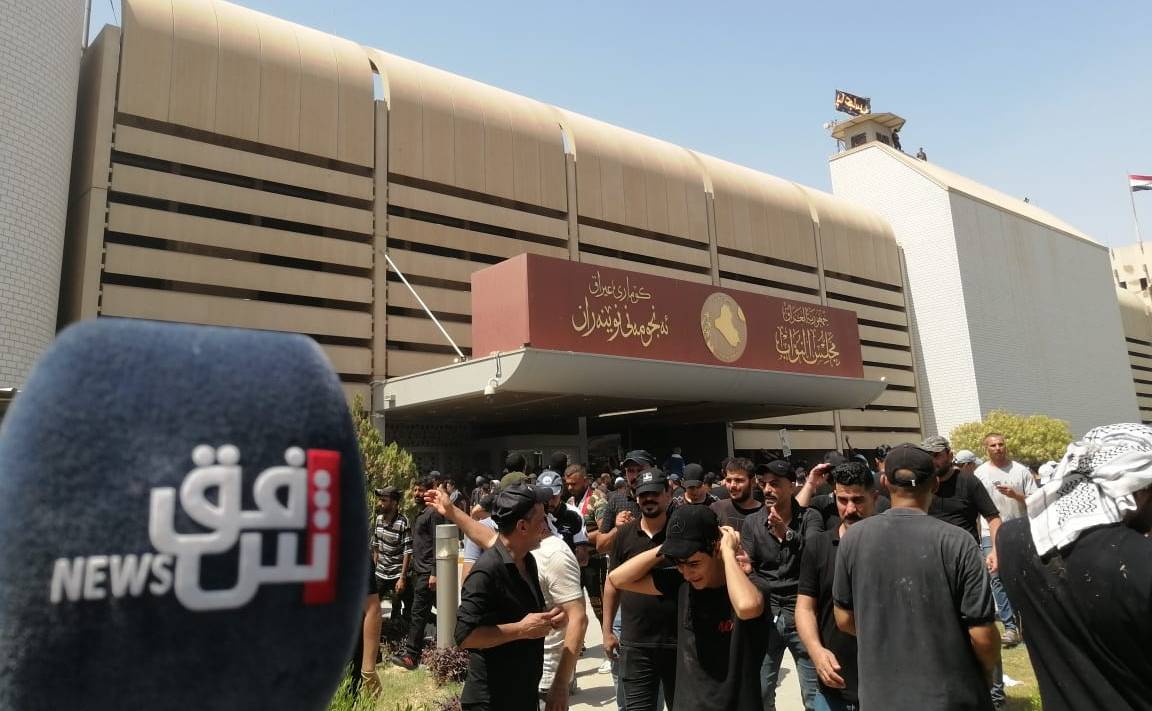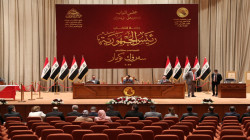Report: The System and the Parallel System in Iraq

Shafaq News / Calls for a change in the Iraqi political system and amendments to the constitution have popped up early and often in Iraq’s post-2003 parliamentary government. Indeed, since the new constitution was voted into power in 2005, many have been quick to blame all of Iraq’s crises and problems on an “ineffective” parliamentary system.
Most recently, such accusations were made following the storming of the Iraqi parliament building and sit-ins by supporters of the Sadrist current, during which Muqtada al-Sadr called for the constitution and political system to be changed. These calls were echoed by other forces, including the militia group Asaib Ahl al-Haq (AA), led by Qais al-Khazali. For example, the AAH’s former deputy leader, Naim al-Aboudi, said in a blog post that “reforming the political system… has become a requirement, more urgent than ever before.” In addition, Khazali’s statement specifically renewed talk about the need to adopt a presidential system, describing it as “appropriate for Iraq.”
The idea of a presidential or semi-presidential system in Iraq is not new, and in fact it was Khazali who launched the concept back in 2012. The Extension or Emtidad Movement—which emerged from the popular youth movement of the October 2019 uprising—has similarly called for changing the system from parliamentary to presidential or semi-presidential in an effort to escape the current political crises plaguing the country. In a statement, the movement said that one of the most important principles it adopted since its founding is changing Iraq’s system to a presidency or semi-presidency. As an emerging party, the movement views the direct election of a president by the Iraqi people as essential in ending the system of quotas and sectarian divisions that has come to hinder any reformist movements in Iraq.
The strange irony in this matter is that both sides of the conflict in Iraq believe that the system is to blame for governmental failure. Despite the fact that Iraq’s constitution explicitly outlines a functioning government structure—including fundamental rights, state formation guidelines, political, social, and intellectual freedoms, federal and independent body authorities, and regional and provincial structures—figures like Khazali still insist on the idea that the parliamentary system, not the performance of ministers and party officials, is responsible for the political crisis. Of course, Khazali also insists that Iraq’s Shia population, as the largest population component in Iraq, has the right to exclusive power.
When actually analyzing politics in Iraq in the post-2003 period, however, observers must ask themselves: is it really the parliamentary system that is at fault for the repeated failures of Iraq’s stability? As anyone who has followed Iraq and its political process after the fall of the regime will tell you, the current system in Iraq is not the system as defined in the 2005 constitution. What exists today is instead a parallel system and state in which sectarian parties have manipulated the political structure to suit their interests rather than serve the people. As a result, the formal Iraqi political system outlined in the constitution has become marginal—a set of formalities, nothing more.
In the sense of everyday functioning, these formalities are transcended by the political customs and “traditions” established by the various political forces in Iraq to keep the elite in power. Since the Iraqi constitution was established and voted upon in 2005, political forces have opted to take divergent paths, away from what the constitution specified and instead adhering to the corrupt practices of previous authoritarian regimes.
The deterioration of Iraq’s constitutional structure is especially concerning regarding the marginalization of key laws by political parties. More specifically, various parties have worked to actively violate and ignore laws such as the oil and gas law (Article 110), the border ports administration law, and dozens of other articles in order to secure their interests and preserve power. This has created a tradition of administrative chaos and has caused long-standing crises and heated disagreements between the federal government and the Kurdistan region over administration and imports.
Iraq’s political parties have also failed to follow through on important constitutional stipulations like Article 38, which guarantees basic civic freedoms such as the freedom of expression, the freedom of assembly and peaceful demonstration, and the freedom of press. Rather than passing laws or making decisions to reaffirm and protect these freedoms, as truly democratic politicians should, Iraq’s political parties are usually the ones violating these constitutionally mandated civic freedoms. Indeed, it seems as though these parties would prefer to adhere to dictatorial laws such as Article 228 of the 1969 Iraqi Penal Code, which muzzles dissidents and undermines freedom of expression.
Through the judiciary, Iraq’s political parties have only further cemented their distorted version of the federal state. Rather than serving as an unbiased arbiter between parties and federal entities, the federal court system has become a mere extension of party interests and toxic sectarian dynamics.
Having been manipulated by various political factions, the judiciary is known to interpret articles of the constitution according to partisan interests. When Article 73—stipulating that Iraq’s president must nominate the representative of the “largest bloc” to form a government—became a point of contention in the 2010 parliamentary elections, for example, the judiciary’s interpretation was significantly biased. Although the party bloc with the largest number of votes was technically the al-Iraqiya bloc belonging to Ayad Allawi (91 seats), the second-place bloc belonging to Nouri al-Maliki (89 seats) put serious pressure on the Iraqi Federal Court to interpret “largest bloc” as the bloc formed in parliament. As a result, Maliki was able to cling to power for another term—a development that, of course, fundamentally changed the democratic course of the country.
Given that Iraq’s constitution has never been given a true chance, it is still possible that the Iraqi government can achieve greater success through the accurate implementation of the constitution and an honest adherence to its provisions, along with the removal of radical amendments and changes to the system. Although the formation of a presidential system is perhaps a realistic demand given the current Iraqi context, it's important to understand that the 2005 constitution has not even been tested yet—certainly not enough for politicians and activists to call for its abolishment.
What exists today is a parallel constitution: one produced by the parties and manipulated over the years according to party interests, not along the lines of the law. While blaming the government structure, authorities have done nothing but pursue partisan and personal gains, even at the expense of the dignity of their homeland and their fellow citizens. The narrative surrounding government failure in Iraq must be reframed to focus on this parallel reality, and any competent authorities in Iraq—including the Federal Supreme Court and the parliament—must work to dismantle the parallel system while preserving the Iraqi constitution itself, keeping it away from the whims and narrow interests of sectarian party politics.
(The Washington Post)
